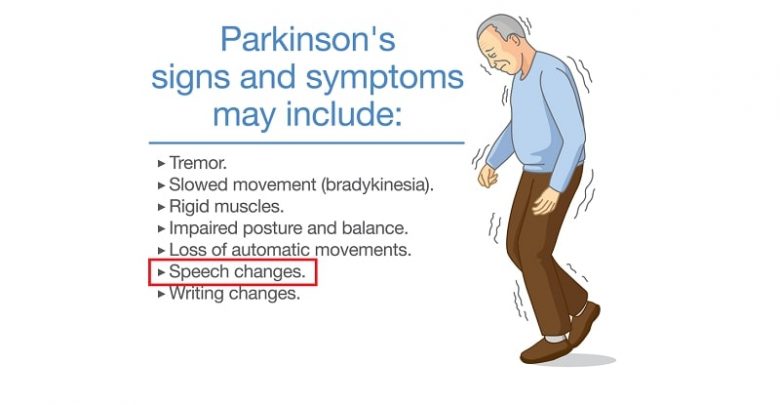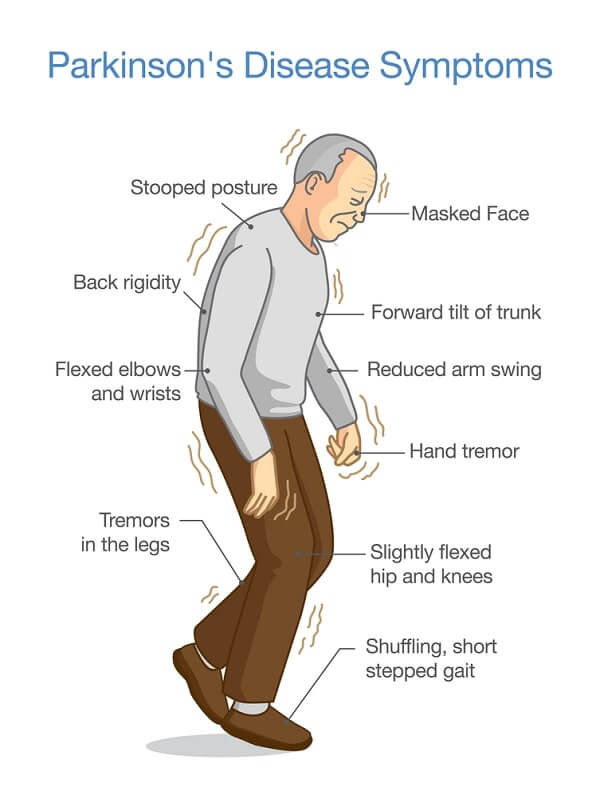Speech Problems & Parkinson’s Disease

Parkinson’s disease is a disease which affects your body, your routine movements and rendering basic tasks are difficult. Parkinson’s disease affects the muscles for movement and also the muscles needed for communication. People diagnosed with Parkinson’s face issues with their speaking skills, facial expressions and handwriting as well.
Some not all face problems in communication in Parkinson. The symptoms vary from person to person and the stage of emergence of these problems can be different for everyone.

Common symptoms are:
• An unsteady or raspy voice
• Speech becomes slurred
• Volume gets really low while speaking
• Speech volume gets reduced
• Writing becomes very small called micrographia
• Tone becomes monotonous
• Facial expressions lessen or go altogether
• Difficulty is faced while forming words
• Hand gestures and body language is affected
Useful Tips to Overcome The Speech Problems:
Following are some useful speech tips:
1. Take pauses while speaking and take a deep breath before you start talking.
2. Face your listener and maintain eye contact while speaking to them.
3. Exert pressure and exaggerate your pronunciation so that the listener can read your lips.
4. Keep your sentences short and precise.
5. Try to speak often do not let the disease make you get into the habit of allowing others to speak for you.
6. Ask your friends and family to not feel shy and ask you to repeat if they do not understand you.
7. Relax yourself when you talk so more efforts can be put into your speech.
8. Stress the key words and make each word as clear as possible.
9. Another practice which will improve your voice is singing regularly. It will use your voice and breathing muscles.
10. You could imagine that you are in a huge room and talk louder but without shouting.
11. Do not feel embarrassed and try to socialize and talk as much as possible.
A Speech Pathologist:
A speech pathologist can help you with all problems which you might be facing regarding communication as he is a health professional. Speech pathologist can work with communication as well as speech, facial expressions and body language.
It is wise to seek one at early stage soon after diagnosis. He can help you in the early stages and assess the problems that you might be facing and suggest suitable particular strategies.
Even thought, you do not have much issues regarding speech, a pathologist can detect changes which you have not paid attention to. He can advise you on prevention from developing further speech problems.
Useful Tips to Improve Handwriting:
1. Write in capital letters on lined paper.
2. If you have a problem of tremor, wear a weighted cuff around your wrist to create weight.
3. Use thick pencils and pens so that they provide a thicker grip and make holding easy.
4. Go slow. Write for a while, rest and then start again.
5. Use a non-stick mat under your notepad so that it does not slide while you are writing.





